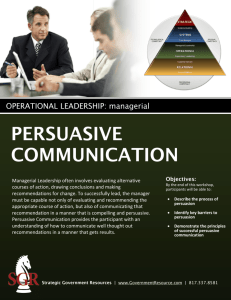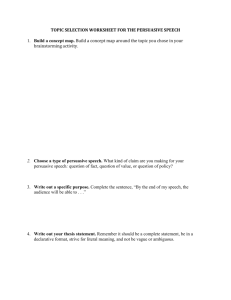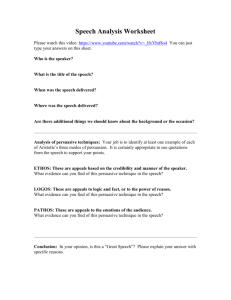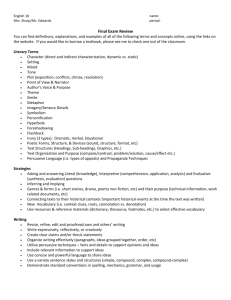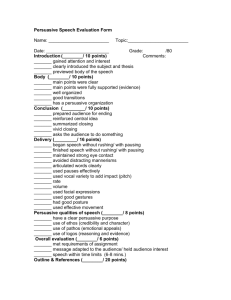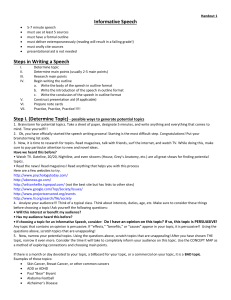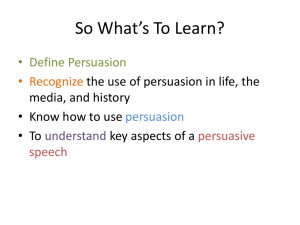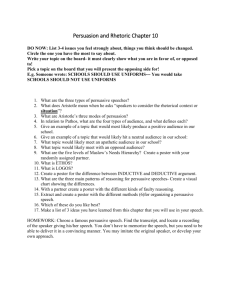The Persuasive Speech 300 points Essentially the same criteria
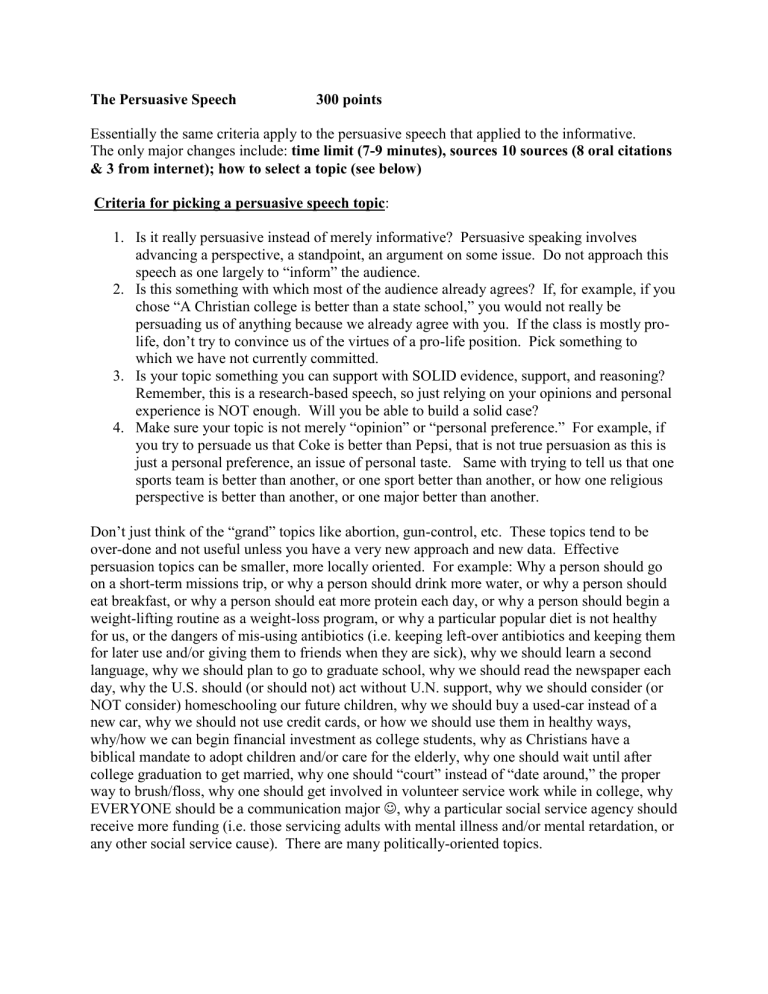
The Persuasive Speech 300 points
Essentially the same criteria apply to the persuasive speech that applied to the informative.
The only major changes include: time limit (7-9 minutes), sources 10 sources (8 oral citations
& 3 from internet); how to select a topic (see below)
Criteria for picking a persuasive speech topic :
1.
Is it really persuasive instead of merely informative? Persuasive speaking involves advancing a perspective, a standpoint, an argument on some issue. Do not approach this speech as one largely to “inform” the audience.
2.
Is this something with which most of the audience already agrees? If, for example, if you chose “A Christian college is better than a state school,” you would not really be persuading us of anything because we already agree with you. If the class is mostly prolife, don’t try to convince us of the virtues of a pro-life position. Pick something to which we have not currently committed.
3.
Is your topic something you can support with SOLID evidence, support, and reasoning?
Remember, this is a research-based speech, so just relying on your opinions and personal experience is NOT enough. Will you be able to build a solid case?
4.
Make sure your topic is not merely “opinion” or “personal preference.” For example, if you try to persuade us that Coke is better than Pepsi, that is not true persuasion as this is just a personal preference, an issue of personal taste. Same with trying to tell us that one sports team is better than another, or one sport better than another, or how one religious perspective is better than another, or one major better than another.
Don’t just think of the “grand” topics like abortion, gun-control, etc. These topics tend to be over-done and not useful unless you have a very new approach and new data. Effective persuasion topics can be smaller, more locally oriented. For example: Why a person should go on a short-term missions trip, or why a person should drink more water, or why a person should eat breakfast, or why a person should eat more protein each day, or why a person should begin a weight-lifting routine as a weight-loss program, or why a particular popular diet is not healthy for us, or the dangers of mis-using antibiotics (i.e. keeping left-over antibiotics and keeping them for later use and/or giving them to friends when they are sick), why we should learn a second language, why we should plan to go to graduate school, why we should read the newspaper each day, why the U.S. should (or should not) act without U.N. support, why we should consider (or
NOT consider) homeschooling our future children, why we should buy a used-car instead of a new car, why we should not use credit cards, or how we should use them in healthy ways, why/how we can begin financial investment as college students, why as Christians have a biblical mandate to adopt children and/or care for the elderly, why one should wait until after college graduation to get married, why one should “court” instead of “date around,” the proper way to brush/floss, why one should get involved in volunteer service work while in college, why
EVERYONE should be a communication major
, why a particular social service agency should receive more funding (i.e. those servicing adults with mental illness and/or mental retardation, or any other social service cause). There are many politically-oriented topics.
